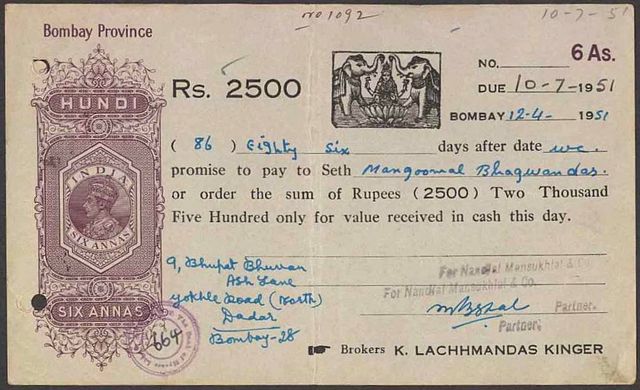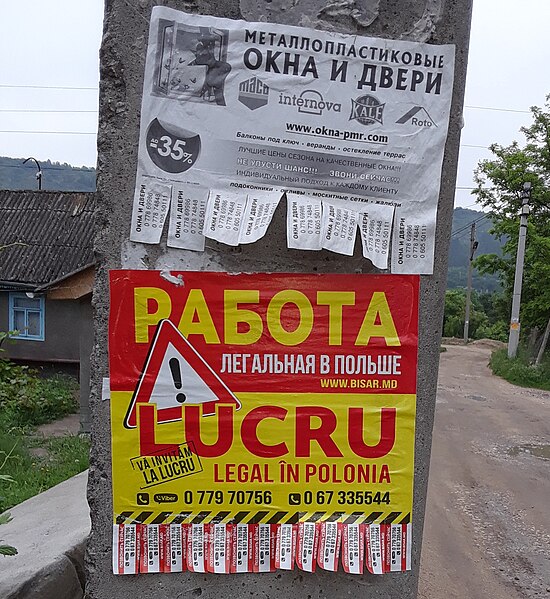Hawala or hewala, originating in India as havala, also known as havaleh in Persian, and xawala or xawilaad in Somali, is a popular and informal value transfer system based on the performance and honour of a huge network of money brokers. They operate outside of, or parallel to, traditional banking, financial channels and remittance systems. The system requires a minimum of two hawaladars that take care of the "transaction" without the movement of cash or telegraphic transfer. While hawaladars are spread throughout the world, they are primarily located in the Middle East, North Africa, the Horn of Africa and the Indian subcontinent. Hawala follows Islamic traditions but its use is not limited to Muslims.
A 1951 hundi of Bombay Province for Rs 2500 with a pre-printed revenue stamp
A remittance is a non-commercial transfer of money by a foreign worker, a member of a diaspora community, or a citizen with familial ties abroad, for household income in their home country or homeland. Money sent home by migrants competes with international aid as one of the largest financial inflows to developing countries. Workers' remittances are a significant part of international capital flows, especially with regard to labor-exporting countries.
"Work in Poland legally" street advertisement in Transnistria
International money transfer ad in London, with texts in Polish and Russian
Western Union phone parlors near Times Square, 2008
Medieval Hundi is Indian-origin remittance system. A hundi for Rs 2500 of 1951 stamped in the Bombay Province with a pre-printed revenue stamp.




